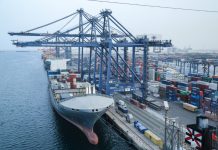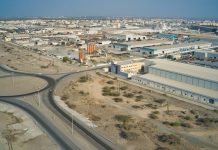Consumers should be protected from low-quality, low-cost foreign products which are flooding the local aluminium market, at the expense of good-quality, indigenous products, says Ihab Mouallem, CEO of National Aluminium Products Company (NAPCO). Excerpts from an interview with Muhammed Nafie
How was the performance of NAPCO in 2018?
The year 2018 was a turnaround-year for NAPCO. The company doubled its production and revenues during the year, in comparison with the previous years. After the expansion in 2015, we had almost doubled the capacity, but the full-fledged utilisation of this capacity was achieved only in 2018. Furthermore, we introduced during the year many new products, which we call ‘hidden gems’. That is why NAPCO was not majorly affected by the economic crisis that engulfed the GCC region.
In the GCC, NAPCO is placed fifth in terms of capacity, but when it comes to production and revenues, we are number two since July 2018 till date. This is a remarkable achievement given the market and metal prices fluctuations.
We have also expanded our network considerably. We forayed into India for the first time, by supplying our products to One Avighna Park, a major Luxury Residential project in Mumbai. We continued to export to the UK. In addition, we expanded our network in the Middle East, by establishing our presence in almost all countries in the region. Africa especially the North Africa, has proved to be a very promising market for us. We have started exporting to the region since September 2018.
In short, we have put the ‘Made in Oman’ mark in Europe, India, Africa and across the globe.
What is your current production capacity? How much is your total export volume?
NAPCO’s total installed capacity is 42,000 metric tonne per annum, while the current capacity is 36,000 metric tonne per annum. We export roughly 70 per cent of our products, while the remaining 30 per cent caters to the local market. Our plan for 2019 is to increase our export volume to 75 per cent.
What is your market share in the local market?
In Oman, there is a slight drop in demand since August 2018. Currently, our local market share is only 25 per cent, as the Omani market is flooded with low-quality, low-cost products coming in from neighbouring countries. But we have our competitive edge in the region, as most of the regional markets are well regulated with stringent quality restrictions. In Oman also, we learnt that the Ministry of Commerce and Industry is in the process of introducing new regulations and quality standards.
Do you have plans to expand your production facility and enhance export capacities?
In fact, there is absolutely no expansion plan for 2019. The company has expanded in 2015 by doubling the production capacity which in turn increased our export quantities. We utilised our capacity almost to the maximum in 2018. In 2019, we are looking to stabilise our production, enhance the existing capacities by adding new product mix, concentrate in new industrial sectors and consolidate our presence in the new export markets that we entered into in 2018.
Likewise, we will be adding some new markets mainly in Europe in 2019 and expanding our operations in in India and North Africa.
Could you elaborate on your Omanisation and ICV contributions?
We maintain the stipulated 35 per cent of Omanisation in the industry. But this is not our target. We have set ourselves the target to train and employ more Omani workforces. We have been training 12 Omani engineers who will be joining us in early 2019.
At NAPCO, almost 90 per cent of the senior positions are occupied by Omanis. NAPCO is the only public shared company in the GCC and has a commitment to the community by recruiting more nationals and by involving in social responsibilities.
We accord to priority to recruiting and training young Omani talent. They are performing well in different capacities. For instance, the thermal break system, we introduced in 2018, was fully designed and developed in-house by our Omani workforces. I assisted them personally, but we made it a point that we would not hire any expatriate employee to design this system.
When it comes to in-country value, our main issue is that our raw materials such as billets, powder and chemicals are not available in Oman. But I foresee some of these raw materials will be available in Oman in three to four years. We are collaborating with some of the companies in this direction.
What are the major challenges facing the aluminium sector in Oman?
One of the main challenges is the electricity tariff, which is exorbitantly high in Oman. Ours is a highly energy-intensive industry and our electricity bills almost double in the summer seasons. In the neighbouring countries, similar industries are getting electricity in subsidised rates. The new regulations came all of sudden which caught us unawares.
Another big challenge is the apathy in utilising in-country value among the public and private sector companies in Oman. The companies should give priority to good-quality indigenous products and services, instead of opting for low-cost and low-quality products from outside.
Has the Trump administration’s decision to impose tariffs on steel and aluminium imports affected you indirectly?
The direct effect is not there as we don’t export to the US. But the indirect effect is very huge, because the Omani market has been targetted by producers who used to export to the US before the decision. This is again related to the lack of proper regulations on imports to Oman. However, our neighbouring countries are not much affected by this.
Today, you can see the Omani market being flooded with low-quality products with a thickness of as low as 0.7mm. Therefore we are calling for regulation in order to safeguard and protect the consumers.
What is your industry outlook?
We are very optimistic about 2019. Saudi Arabia has announced the launch of several new projects in 2019. Oman has a lot of promising projects in the pipeline. UAE and Kuwait markets are also in the ascendant.






